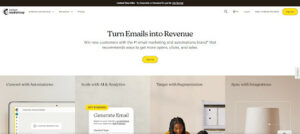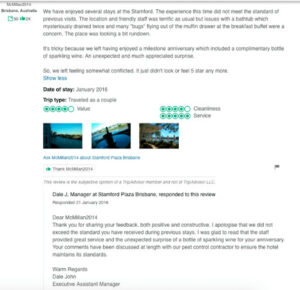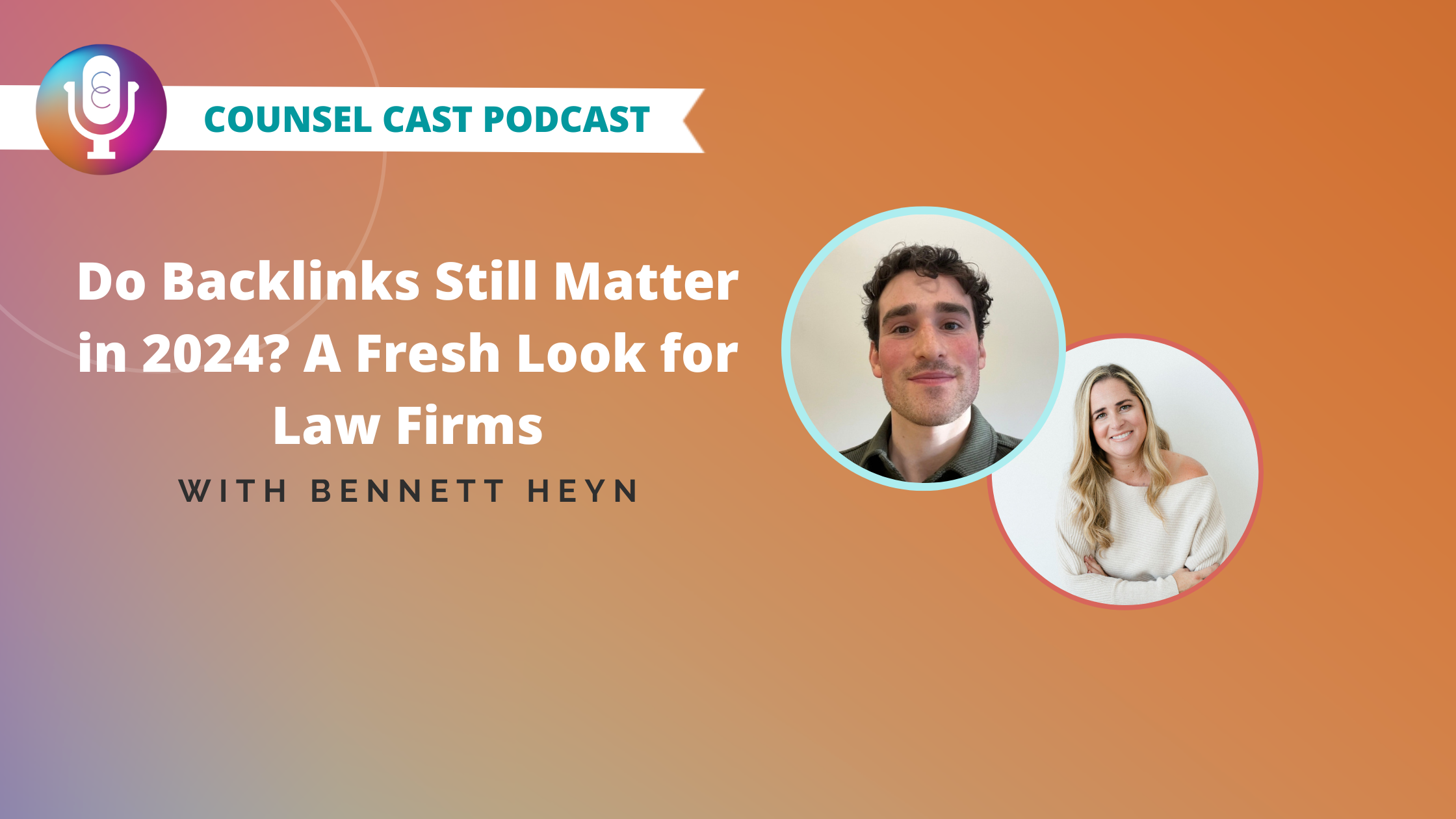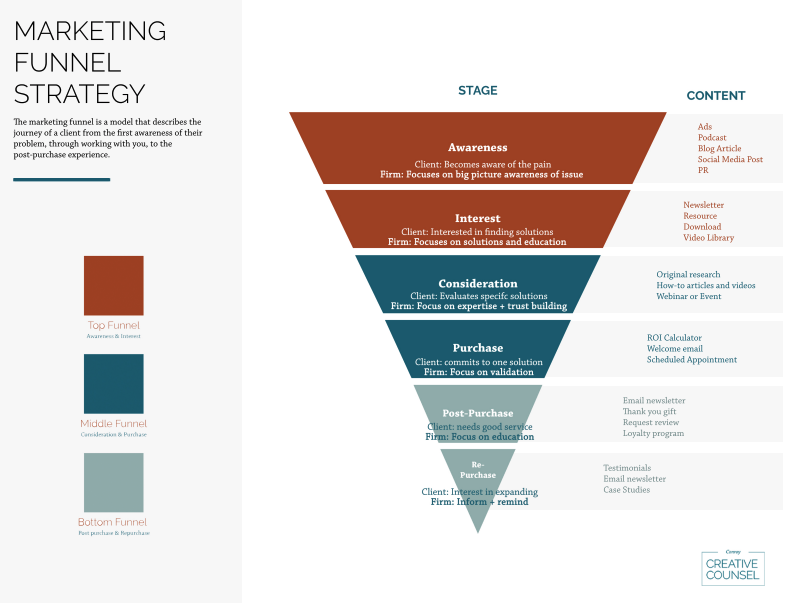In today’s digital age, a law firm’s website is the primary point of contact for potential clients. To stand out in a competitive market and establish credibility, prioritizing website trust factors is crucial for law firms. These elements play a significant role in instilling confidence and convincing visitors that they have found the right legal partner.
Trust is one of the most important elements in your law firm. Trust is necessary for website visitors and potential clients to move forward to take the next step in employing your services. This article will explore the essential website trust factors law firms should incorporate into their online presence.
Professional Design and User Experience
A law firm’s website should exude professionalism and sophistication through its design and user experience. It should feature a clean and visually appealing layout that is easy to navigate. A cluttered or outdated design can create a negative impression and cause visitors to doubt the firm’s credibility.
Ensuring a seamless user experience is equally important. Optimize website loading speed, implement responsive design to provide an optimal viewing experience across devices, and ensure intuitive navigation. By focusing on design and user experience, law firms can make a positive first impression and build trust with potential clients.
Freshbooks is a great example of a homepage that clearly states the company’s mission, lays out its features, and gives visitors a bold, direct CTA (call to action).
Easy to Navigate
Your law firm’s website should be easy to navigate. A user visiting your website should only have to make 2-3 clicks to find what they’re looking for. The longer it takes them to find what they’re looking for, the less likely they’ll hang around your website and become a lead or sale.
MailChimp’s homepage is a great example of easy website navigation. It’s clean, simple, and breaks out content categories. It has a universal navigation bar at the top of the page that hides as you scroll, then reappears when you hover over the top of the page.
Engaging and Authentic Content
Compelling and informative content is a key driver for establishing trust. Law firms should provide valuable resources on their website, such as articles, blog posts, and FAQs, that address common legal concerns. This content showcases the firm’s expertise and demonstrates a commitment to educating and empowering potential clients.
It’s essential to ensure that your content is kept up to date. One way to ensure that your content remains relevant is to create evergreen content. Evergreen content isn’t based on current trends but instead addresses core issues your audience is concerned with.
TechCrunch is a great example of a blog consistently providing relevant, updated technology and startup news information. It has a clean, easy-to-read layout with a white background and black text. Most recent posts are shown on the homepage, with a sidebar for easy navigation.
Social Proof
Furthermore, featuring case studies, client testimonials, and success stories can greatly enhance trust. These elements offer real-life examples of the firm’s accomplishments and client satisfaction, highlighting its ability to handle legal matters effectively.
Chime’s landing page allows visitors to apply for an account, but if you scroll further, you’ll find their social proof. They show how valuable their app is by showing a 5-star review with a glowing testimonial on how their app worked for their customers.
Strong Online Reputation
Building a strong online reputation is vital for law firms. Potential clients often research a firm’s reputation before making a decision. Law firms should actively manage their online presence, monitoring and responding to online reviews and feedback. Encouraging satisfied clients to leave reviews on platforms like Google My Business, Avvo, or Yelp can significantly boost trustworthiness.
Moreover, highlighting awards, accolades, and professional affiliations on the website further enhances credibility. Displaying logos of respected legal organizations and professional memberships reinforces the firm’s commitment to excellence and adherence to industry standards.
Here is an example of how Stamford Plaza Brisbane’s management handled a complaint from a loyal customer. Their response shows they listen to the customer’s concerns and have responded with an actionable solution.
Clear and Transparent Contact Information
Unfortunately, there are some very believable fake or scam websites online. One thing all these websites have in common is missing or incomplete contact information.
A law firm’s website must prominently display accurate and up-to-date contact information. Include a dedicated contact page with a contact form, email address, phone number, and office address. Providing multiple contact options helps potential clients reach out in the most convenient way for them and builds trust.
Additionally, consider implementing live chat functionality to facilitate instant communication. This feature allows visitors to have their questions answered promptly, further building trust and demonstrating accessibility.
IMPACT has a unique contact page. They have a video with a personal message and a clear CTA under the video. They also have a standard contact form.
Security and Privacy Measures
In an era of increasing cybersecurity threats, law firms must prioritize the security and privacy of their website visitors. Implementing SSL certificates to ensure a secure connection, displaying trust seals from reputable security providers, and providing transparent privacy policies are essential.
Law firms should also demonstrate compliance with relevant data protection regulations, such as the General Data Protection Regulation (GDPR) or the California Consumer Privacy Act (CCPA). By addressing these concerns, law firms can alleviate potential clients’ worries regarding data security and confidentiality.
Here are some examples of trust logos that people recognize. The recognized logos people felt were the most trustworthy are PayPal, McAfee, BBB, TRUSTe, and Verisign.
Copyright Year
Another simple fix often forgotten as a new year comes is updating your website’s copyright year. The copyright year can be found in the footer of your website. Updating this will help visitors see that your law firm is still active and trustworthy.
Build a Website Your Clients Can Trust With Conroy Creative Counsel
Establishing trust through a law firm’s website is crucial for attracting and retaining potential clients. Using the abovementioned factors, your law firm can differentiate itself from the competition and instill confidence in visitors. By consistently incorporating these trust factors into your online presence, your law firm can create a lasting impression, drive conversions, and ultimately become the preferred choice for potential clients seeking legal services.
At Conroy Creative Counsel, we can help you establish that trust by designing a website for your firm that conveys your expertise and builds trust with your audience from the moment they arrive on your website. Through innovative design, using the latest technical features, providing professionally written copy, and our ongoing maintenance and security, your website will bring enhanced credibility and professionalism to your online presence.
We want to know more about your firm and your project. Contact us today for a consultation.


















